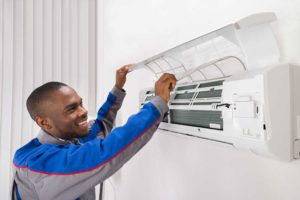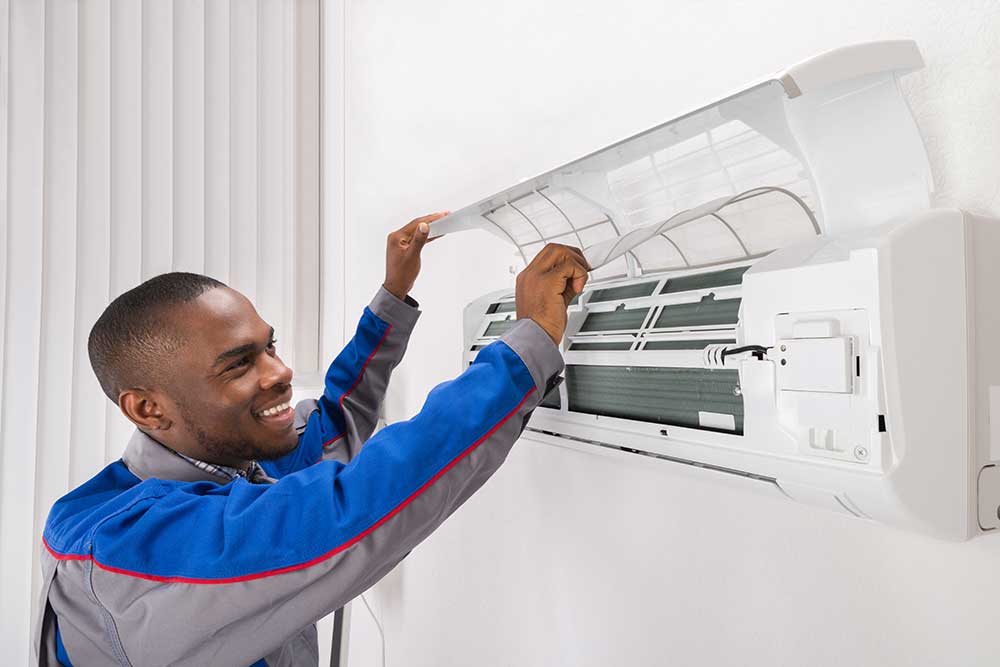Disclaimer: The information on our website is provided for general information purposes only. We make no representations or warranties of any kind, express or implied, about the completeness, accuracy, reliability, suitability or availability with respect to the website or the information contained on our website for any purpose. Any reliance on such information is therefore strictly at your own risk and we are not liable for any damages or losses arising out of or resulting from your reliance on any information contained on our website.
HVAC (Heating, Air Conditioning, and Refrigeration) technicians repair, maintain, and install heating, air-conditioning and refrigeration systems. They are responsible for heating, cooling, and air quality in residential homes and businesses. Next, watch a video to learn what a HVAC Technician does.
How to Become a HVAC Tech

To become a HVAC technician, you must be 18 years old, have a high school diploma or equivalent, pass a basic math test, pass a substance abuse screening, and have a valid drivers license. Next, you would attend and complete programs an HVAC program at a trade school or community college. These programs usually last anywhere from 6 months to 2 years and you will become certified or receive an associate’s degree. Additionally, some states or localities do require HVAC techs to be licensed. Furthermore, it can be advantages when applying for jobs if you have skills with electronics.
Alternatively, you can actually attend college and an apprenticeship program at the same time to gain hands-on experience on-the-job. Apprenticeships are beneficial as you can earn a wage while apprenticing and learn at the same time. Though some technicians may bypass a trade school program and land an apprenticeship right away, many do both a program and apprentice.
Job Description of a HVAC Tech
A heating, air conditioning, and refrigeration mechanic/installer works on units that provide air quality and temperature control in homes, hospitals, and businesses. They use design specifications or blueprints to repair or install units and test the systems for proper working order.
HVAC techs replace or repair parts or units and advise clients how to improve a system to become energy efficient. A HVACR may choose to specialize in a particular area of equipment, like solar panels or other types of systems or may wish to focus on maintenance and installation. They must be current on government regulation when working with air conditioning or refrigeration units and need to be aware of the correct way to dispose and handle pressurized gases and fluids. This job is often done outdoors in hot or cold climates and you may need to work in tight spaces.
Article Citations
Bureau of Labor Statistics, U.S. Department of Labor, Occupational Outlook Handbook, Heating, Air Conditioning, and Refrigeration Mechanics and Installers.
National Center for O*NET Development. 49-9021.01. O*NET OnLine.

